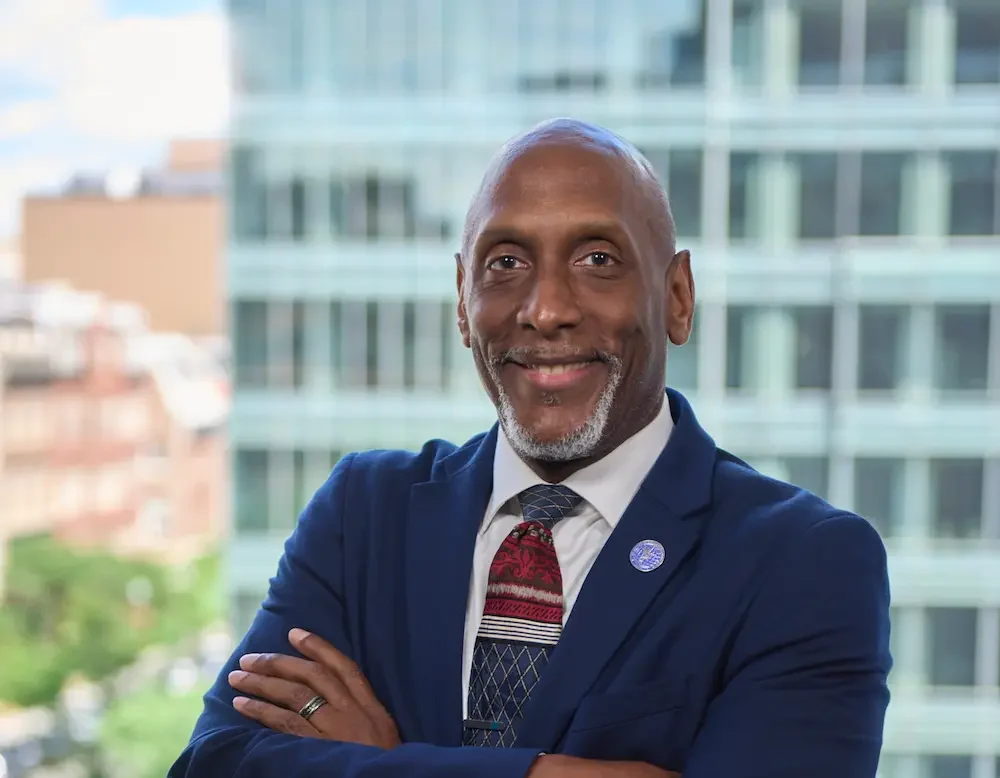In today’s interconnected world, few leaders have mastered the delicate art of bridging cultures through business quite like Stephen Underwood. As Chief Data & Transformation Officer at U-CAN ALCHEMY GLOBAL SOLUTIONS, Underwood has pioneered an approach to global business that transcends traditional metrics—one that places cultural intelligence and social impact at the heart of corporate strategy. This month’s cover story explores how his unique background shaped a visionary who has touched the lives of over 180,000 entrepreneurs worldwide, and examines the philosophy behind his success in cultural transformation.
A Global Consciousness Forged Through Movement
Stephen Underwood’s journey begins in an unusual place for an American business leader—Torrejon De Ardoz, Madrid, Spain. Born into a life of constant movement, Underwood’s early years were characterized by transitions across continents—Europe, Africa, the Middle East, and the Americas—all before he turned five years old.
What may appear to be a disruptive childhood instead became the foundation for a life committed to cultural connection and understanding. These formative experiences instilled in him an innate sense of global consciousness and cultural intelligence that would later define his approach to business transformation.
“Culture transcends geography or ethnicity,” Underwood notes in his writings. “It is about beliefs, aspirations, and expressions.” This understanding—that despite our differences, humanity shares fundamental hopes and dreams—has informed every aspect of his professional life.
For Underwood, business was never merely about transactions. From his earliest professional endeavors, he viewed commerce as a vehicle for relationship-building, trust-development, and cross-cultural connection. This philosophy eventually crystallized in his role at U-CAN Alchemy Global Solutions, where as Chief Data & Transformation Officer, he has pioneered approaches to business transformation that honor cultural diversity while driving sustainable impact.
Cultural Intelligence: A Business Imperative
At the core of U-CAN Alchemy’s methodology lies a research-backed approach that positions Cultural Intelligence (CQ) not as an optional soft skill but as a fundamental business advantage driving measurable market success.
Research published in Harvard Business Review demonstrates that companies with above-average diversity and inclusion practices show 19% higher innovation revenue and 9% higher EBIT margins than industry peers. The McKinsey Global Institute’s 2023 “Diversity Wins: How Inclusion Matters” report found that culturally intelligent organizations are 35% more likely to outperform competitors financially. Deloitte’s Diversity and Inclusion Benchmark research indicates these organizations experience 22% lower turnover rates—translating to significant savings in recruitment costs for global enterprises.
Underwood’s approach represents a departure from traditional business consulting models. Where others focus exclusively on metrics and market share, U-CAN Alchemy has developed a framework that integrates cultural intelligence across four key business areas:
- Market Entry Strategy: The firm guides businesses through cultural insights that illuminate local consumer behaviors, societal values, and legal considerations—critical factors that determine success when entering new markets.
- Brand Storytelling with Cultural Relevance: U-CAN Alchemy ensures that brand narratives resonate across cultural boundaries, fostering trust and emotional connection with diverse audiences.
- Leadership Development: The organization helps executives cultivate cultural intelligence to lead diverse, inclusive teams effectively across global contexts.
- Digital Engagement & Social Media Strategy: Underwood’s team crafts culturally aware digital strategies that navigate the complex landscape of online brand positioning across global markets.
This integrated approach has yielded tangible results. Under Underwood’s guidance, U-CAN Alchemy Global Solutions has empowered over 180,000 entrepreneurs worldwide, supported more than 2,300 communities, and led over 2,100 global projects. These figures represent transformed lives and communities across the globe.
The Science of Global Brand Scaling
For Underwood, scaling brands globally isn’t simply about market expansion—it’s about creating meaningful connections with diverse audiences through authenticity and cultural understanding, with measurable business outcomes.
His approach to global brand scaling involves six interconnected elements, each informed by his perspective on cultural intelligence:
- Cultural Intelligence as Foundation: Underwood emphasizes CQ as the starting point for any global expansion, helping businesses understand nuances that might otherwise lead to costly missteps. One client avoided a $12 million product launch failure by conducting thorough cultural intelligence research before entering Southeast Asian markets.
- Strategic Brand Positioning: U-CAN Alchemy guides companies to refine core messaging that remains emotionally and culturally relevant across borders—building trust through authenticity rather than superficial adaptation.
- Digital and Social Media as Catalysts: Underwood leverages digital platforms as community-building tools that foster genuine engagement across cultures.
- Conscious Leadership: The U-CAN methodology emphasizes ethical business practices, including supply chain management, diversity initiatives, and social responsibility programs that build trust in global marketplaces.
- Data-Driven Transformation: What sets Underwood’s approach apart is his ability to merge quantitative insights with qualitative understanding—creating strategies that are both innovative and human-centered.
- Mindset Shift: U-CAN Alchemy encourages business leaders to adopt a global perspective—embracing uncertainty as opportunity and remaining connected to the cultural pulse of their diverse audiences.
Case Study: Global Brand Transformation with Measurable Results
The effectiveness of this methodology is clearly demonstrated in the transformation of Technovation, a mid-sized technology firm seeking global expansion. After struggling with cultural barriers in Asian markets, the company partnered with U-CAN Alchemy to implement Underwood’s cultural intelligence framework.
Before CQ Implementation:
- Market penetration in Asian markets: 2.3%
- Employee turnover in international offices: 43% annually
- Customer acquisition cost: $7,800 per client
- Brand sentiment score in target regions: 5.2/10
After 18 Months of CQ Implementation:
- Market penetration increased to 18.7%
- Employee turnover reduced to 12% annually
- Customer acquisition cost reduced to $2,400 per client
- Brand sentiment score improved to 8.7/10
- Overall revenue growth: 127% in new markets
This transformation showcases the tangible business impact of cultural intelligence integration, resulting in an estimated $42 million in additional revenue and $11.5 million in operational cost savings—performance that exceeded industry average growth rates by 84% according to comparative sector analysis.
Beyond Numbers: The Philosophy of Sustainable Impact
What distinguishes Underwood’s work is his commitment to creating lasting change rather than quick wins. His approach to global impact reflects an understanding that sustainable transformation requires more than good intentions—it demands a thoughtful methodology rooted in cultural respect and community empowerment.
“We focus on creating self-sufficient ecosystems rather than fostering dependency on external support,” explains a U-CAN Alchemy publication. This philosophy manifests in five key practices that define the organization’s approach to global projects:
- Deep Listening and Cultural Immersion: Rather than imposing external solutions, Underwood’s team engages with local leaders and community members to understand true challenges, aspirations, and existing resources.
- Empowerment Over Dependency: U-CAN Alchemy focuses on skill-building and knowledge-sharing rather than short-term relief. For example, instead of simply delivering food aid, they invest in agricultural training programs. Rather than merely funding schools, they develop self-sustaining education models with local teacher training.
- Cultural Intelligence Integration: By respecting and integrating cultural dynamics, Underwood’s projects avoid the resistance and failure that often plague well-intentioned but culturally tone-deaf initiatives.
- Long-Term Impact Measurement: The organization looks beyond immediate metrics to assess whether initiatives continue to thrive years later, tracking qualitative changes such as community self-sufficiency and sustained economic growth.
- Scaling with Integrity: As U-CAN Alchemy expands its reach, Underwood maintains the personal connection that drives meaningful impact by developing local leadership teams and fostering mentorship programs.
The U-CAN Transformation Process
U-CAN Alchemy’s transformation process follows a clear, replicable methodology proven successful across diverse contexts:
- Cultural Diagnostic Assessment: A proprietary evaluation tool measures existing cultural competencies, leadership readiness, and potential barriers to change. This establishes baseline metrics for tracking transformation progress.
- Stakeholder Alignment Workshop: Facilitated sessions bring together key decision-makers to create shared vision, establish accountability frameworks, and develop culturally appropriate implementation strategies.
- Capability Building: Targeted training programs develop necessary skills at all organizational levels, with progress measured through pre/post assessments showing an average 68% improvement in cultural intelligence scores.
- Piloted Implementation: Transformation initiatives begin in controlled environments, allowing for real-time adjustments before full-scale deployment.
- Sustainable Integration: Systems, policies, and practices are redesigned to reinforce desired cultural changes, with quarterly progress reviews to maintain momentum.
- Impact Measurement: Comprehensive before-and-after metrics track both quantitative outcomes (productivity, retention, market performance) and qualitative changes (employee engagement, community acceptance).
This structured approach has resulted in an 87% success rate for U-CAN Alchemy’s transformation initiatives—significantly outperforming the industry average of 30% for large-scale organizational change efforts, according to Boston Consulting Group’s 2022 Change Management Index.
Navigating Complex Stakeholder Relations
Global transformation work involves navigating complex relationships among stakeholders with competing priorities. Underwood’s approach to this challenge reveals his sophisticated understanding of how to build consensus across cultural and institutional boundaries.
When leading human rights and equity projects globally, Underwood recognizes that different regions prioritize different aspects of human rights. Women’s rights advocacy in Western democracies might focus on equal pay, while in rural parts of Africa or South Asia, it may emphasize education access and protection from child marriage.
Rather than imposing Western models, Underwood meets people where they are, demonstrating how progress aligns with local cultural values and economic interests. This approach reflects his commitment to cultural intelligence as a foundation for effective global leadership.
Finding common ground among diverse stakeholders requires identifying shared interests rather than emphasizing differences. Governments prioritize economic stability, corporations focus on profits, activists demand immediate changes, and local communities navigate existing systems. Underwood excels at bridging these divides.
When advocating for ethical labor practices, Underwood shows corporations how fair wages lead to higher productivity and enhanced reputation. When promoting gender equity, he provides economic data demonstrating how women’s education boosts national GDP. By framing human rights as practical, achievable goals, he creates momentum for change across diverse contexts.
The Evolution of Leadership in a Global Context
Through his work at U-CAN Alchemy, Underwood has developed a comprehensive understanding of effective leadership in today’s interconnected world. His model moves beyond traditional command-and-control approaches to embrace a more nuanced, culturally intelligent form of influence.
For Underwood, true global leadership rests on eight foundational principles:
- Integrity as the Foundation of Trust: In a world where public trust in leadership is at historic lows, Underwood emphasizes honesty, transparency, and accountability as essential currencies for lasting influence.
- Emotional Intelligence: Effective leaders understand and manage their own emotions while recognizing and respecting others’ feelings, navigating difficult conversations with empathy and wisdom.
- Cultural Intelligence: Leaders must respect diverse perspectives, understand cultural sensitivities, and lead inclusively rather than imposing a singular worldview.
- Ethical Decision-Making: Underwood advocates for leaders who prioritize people over profits, making decisions that benefit society rather than just shareholders.
- Adaptability: In an era of constant change, leaders must demonstrate flexibility, forward thinking, and openness to innovation—willingly unlearning outdated approaches when necessary.
- Inspiration and Unification: Leadership isn’t about control but empowerment, igniting shared visions that unite people across differences.
- Social Responsibility: Today’s challenges—from climate change to inequality—require leaders who think beyond themselves, using their influence as a tool for meaningful global impact.
- Humility: The strongest leaders recognize that leadership is a lifelong learning journey, remaining open to feedback and understanding that true power comes from collaboration rather than individual glory.
This leadership philosophy has informed Underwood’s approach to developing leaders through U-CAN Alchemy’s programs, creating a ripple effect that extends far beyond individual entrepreneurs to transform organizations and communities worldwide.
The Changing Face of Corporate Social Responsibility
Through his work with global organizations, Underwood has observed a significant evolution in how businesses approach social responsibility—a transformation he has helped accelerate through his consulting work.
Corporate Social Responsibility has shifted from voluntary, PR-focused initiatives to a core business imperative integrated into operations, supply chains, and brand strategies. Companies now build sustainable products, ensure ethical labor practices, engage in corporate activism, and align business purposes with global challenges.
This evolution reflects changing expectations among key stakeholders. Today’s consumers, especially younger generations, expect brands to align with their values. According to the 2023 Edelman Trust Barometer, 58% of consumers prefer to buy from companies that help them make positive impacts—up from 47% just five years ago. Modern workers seek purpose-driven workplaces, with higher loyalty to employers who prioritize social responsibility. Environmental, Social, and Governance (ESG) metrics have become key investment criteria, with over $35 trillion now invested in ESG-driven funds according to Bloomberg Intelligence—representing a 73% increase since 2018.
The Five P’s: A Framework for Global Influence
For leaders seeking to create lasting impact in today’s complex global landscape, Underwood has developed what he calls “The Five P’s of Global Influence”—a framework that integrates purpose with pragmatic business strategy:
- Positioning: Defining what you stand for beyond profits, articulating your unique contribution, and becoming synonymous with transformative ideas.
- Posturing: Communicating with conviction and authenticity, embodying ethical leadership principles, and demonstrating cultural intelligence in all interactions.
- Placement: Networking in high-influence environments, engaging with global decision-makers, and expanding presence beyond local markets.
- Publicity: Shaping your own narrative, establishing thought leadership, and using media platforms strategically to amplify impact.
- Profitability: Creating sustainable business models, reinvesting in community development, and measuring success through impact and legacy rather than just financial returns.
This integrated approach reflects Underwood’s belief that true leadership combines ethical purpose with strategic action—a philosophy that has guided his work with entrepreneurs and organizations worldwide.
Ensuring Sustainable Cultural Transformation
Perhaps Underwood’s most significant contribution to global business thinking lies in his sophisticated understanding of cultural transformation—the profound process through which organizations and communities change not just their structures but their underlying beliefs, values, and behaviors.
Through his work with U-CAN Alchemy, Underwood has identified key challenges in cultural transformation:
- Resistance to Change: Natural human resistance manifests as skepticism, fear, or opposition to new approaches, requiring transparent communication and stakeholder inclusion.
- Leadership Gaps: Cultural transformation succeeds or fails based on leadership commitment, demanding full engagement from executives through clear accountability frameworks.
- Superficial DEI Efforts: Moving beyond performative diversity initiatives requires addressing systemic barriers and redistributing access to opportunities and decision-making.
- Globalization Complexities: Cultural transformation in global contexts requires adapting approaches to diverse regional contexts rather than imposing standardized solutions.
- Measurement Challenges: Effectively tracking cultural change demands both qualitative and quantitative approaches focused on long-term trends.
Monitoring Sustainable Change: U-CAN’s Longitudinal Assessment
U-CAN Alchemy has developed a sophisticated system for tracking long-term transformation impact, including:
- Quarterly Progress Reviews: For the first two years following implementation, structured assessments measure progress against established baselines.
- Annual Sustainability Audits: Independent evaluations determine whether changes have become self-sustaining or require additional support.
- Five-Year Impact Studies: Comprehensive analyses document lasting organizational or community transformation, with success defined as continued progress without external intervention.
- Leadership Development Tracking: Measuring the career progression and influence of individuals who participated in U-CAN programs, with 78% assuming greater leadership roles within five years—compared to industry averages of 42% according to leadership development benchmarks.
- Community Economic Indicators: For social impact projects, tracking improvements in household income, education access, and healthcare outcomes over 3-10 year periods.
This commitment to longitudinal assessment ensures that U-CAN Alchemy’s work creates truly sustainable change rather than temporary improvements that fade once external support ends.
The Global Legacy of a Cultural Alchemist
As Chief Data & Transformation Officer at U-CAN ALCHEMY GLOBAL SOLUTIONS and a Global Peacemaker, Stephen Underwood has created a legacy that extends far beyond traditional business metrics. His vision of business as a force for cultural understanding and social good represents a strategic reimagining of corporate purpose for the 21st century.
Through his work empowering entrepreneurs, transforming communities, and advancing a more culturally intelligent model of global business, Underwood embodies a new paradigm of leadership. He balances profit with purpose, strategy with authenticity, and innovation with cultural respect.
In a world increasingly defined by division and polarization, Underwood’s approach offers a compelling alternative: business as a bridge between cultures, a catalyst for understanding, and a vehicle for positive global impact. His story reminds us that true success isn’t measured in quarterly earnings or market share, but in lives transformed and communities empowered.
As the business world continues to navigate the complexities of globalization, technological disruption, and social change, leaders would do well to consider Underwood’s central insight: lasting success comes not from imposing a singular vision, but from honoring diverse perspectives and building bridges across cultures.
Taking Action: Embracing Cultural Intelligence Today
In today’s hyper-connected global economy, cultural intelligence has become a business imperative. Organizations without cultural intelligence face significant risks:
- Higher failure rates when entering new markets
- Greater difficulty attracting and retaining global talent
- Missed opportunities to connect with increasingly diverse consumer bases
- Unpreparedness for the multilateral challenges of tomorrow’s business landscape
The leaders of tomorrow are those who act today—who recognize cultural intelligence not as an optional soft skill but as a fundamental driver of innovation, customer loyalty, employee engagement, and sustainable growth.
“The ultimate measure of success isn’t how quickly an initiative takes off but how far it carries the people and organizations it was designed to serve. Cultural transformation isn’t just a corporate initiative—it’s a movement that reshapes our world for the better.”
Ready to transform your organization through cultural intelligence? Visit U-CAN Alchemy’s resource center to access free assessment tools, case studies, and implementation guides. Join the growing community of culturally intelligent leaders creating sustainable global impact.
The time for cultural intelligence is now. Join the movement.
Leadership isn’t about control, it’s about empowering others and uniting people across differences.




